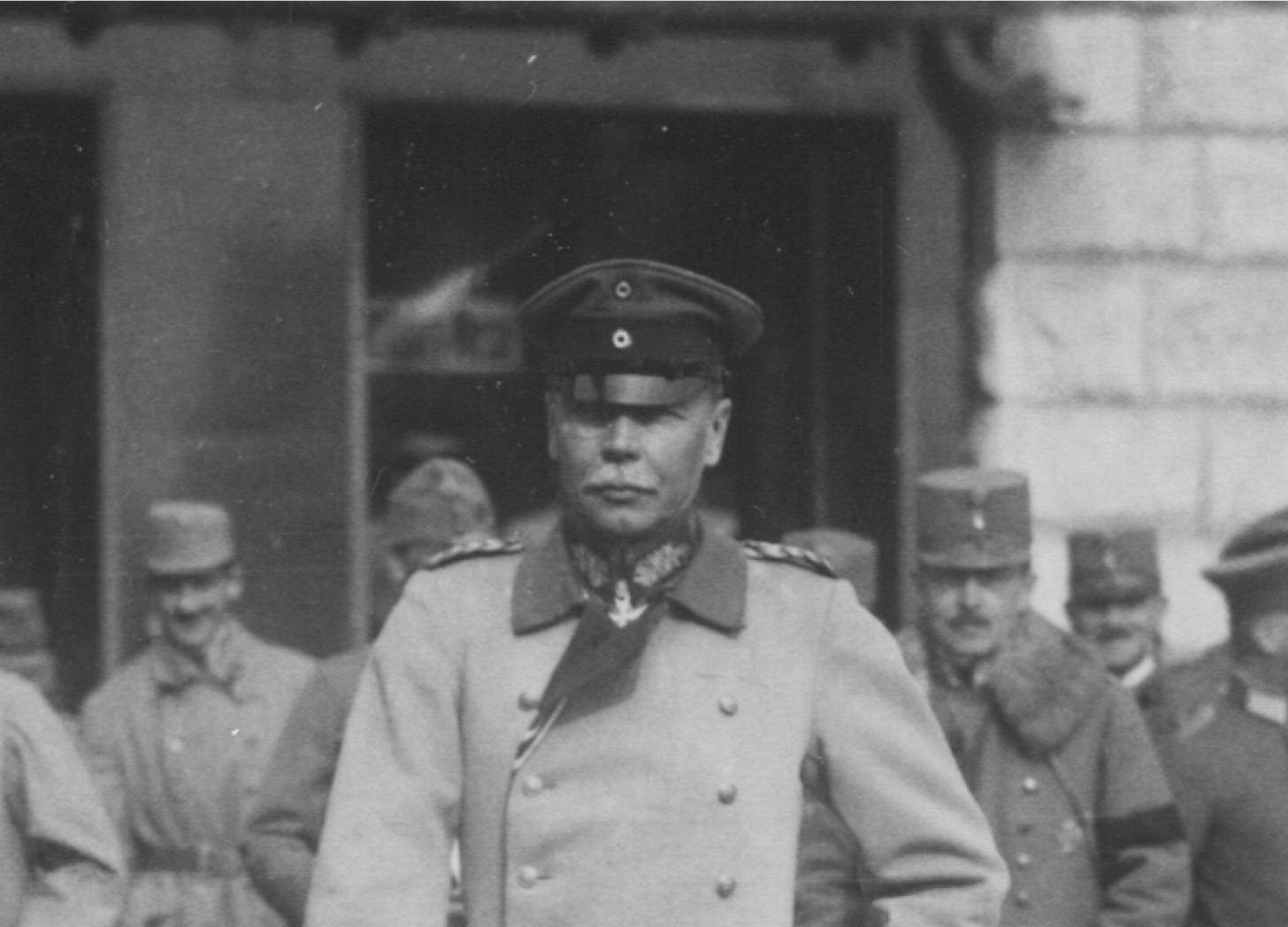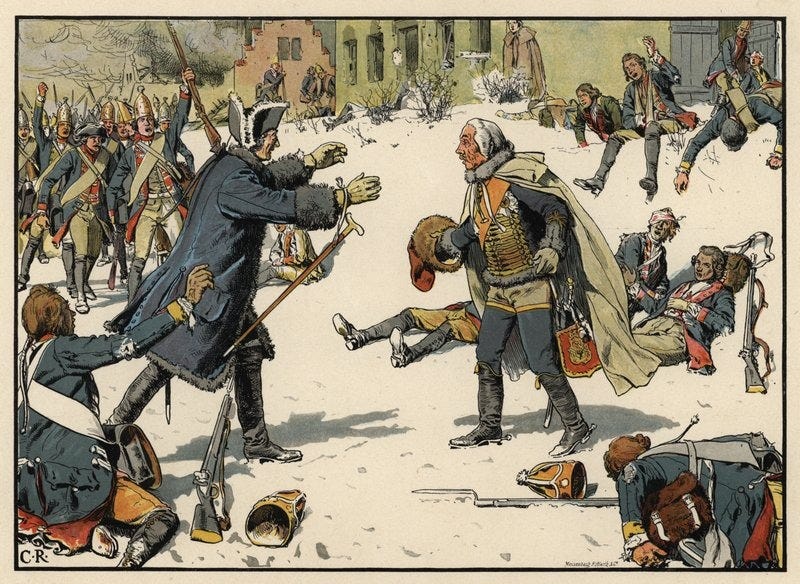The Essential Thing
Hans von Seeckt
During the First World War, Hans von Seeckt planned many of Germany’s most impressive victories: attacks with limited objectives along the Aisne, the breakthrough at Gorlice-Tarnow, and the multi-national conquests of Serbia and Romania. In the early 1920s, he took charge of the creation of the ‘army of leaders’ that would serve Germany’s first republic for much of the interwar period.
In 1927, General von Seeckt published Thoughts of a Soldier (Gedanken eines Soldaten), a book that concludes with a chapter called ‘The Essential Thing’ (‘Das Wessentliche’), my translation of which appears below.
The essential thing is the deed.
The deed consists of three stages: the decision born of thought, the preparation for execution (the order), and the execution itself. The will leads all three of these parts of the deed.
The will springs from character, which, for the man of action, plays a bigger role than intelligence. Without will, intelligence is worthless. Without intelligence, will is dangerous.
In the following paragraphs, I will attempt to describe the unfolding of the three stages of the deed in a way that allows readers to compare the generals I have chosen to serve as examples with other men of action. In order to fulfill his task, the man of action, whom I call ‘the general’ (Feldherr), must possess cultivation and knowledge. Prior professional preparation for this great moment in life, the deed, is not, but far from essential.
We should not overvalue the knowledge won from study. The soldier who stands alone in front a problem should not search the pages of his mental encyclopedia in order to figure out how one of the great generals from history, from Alexander to Zieten, would have acted in a similar case.



